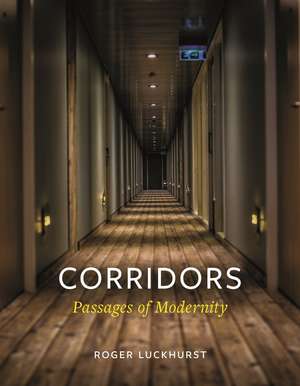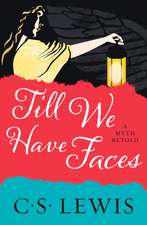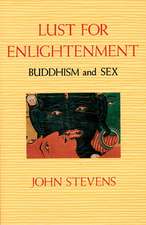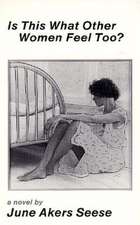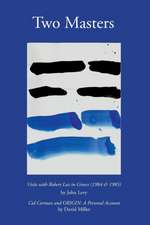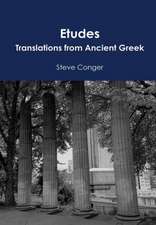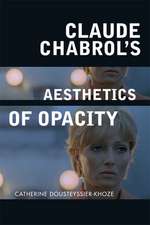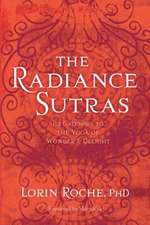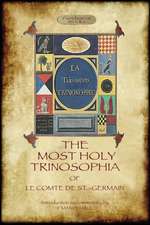Corridors: Passages of Modernity
Autor Roger Luckhursten Limba Engleză Hardback – 30 apr 2019
We spend our lives moving through passages, hallways, corridors, and gangways, yet these channeling spaces do not feature in architectural histories, monographs, or guidebooks. They are overlooked, undervalued, and unregarded, seen as unlovely parts of a building’s infrastructure rather than architecture.
This book is the first definitive history of the corridor, from its origins in country houses and utopian communities in the seventeenth and eighteenth centuries, through reformist Victorian prisons, hospitals, and asylums, to the “corridors of power,” bureaucratic labyrinths, and housing estates of the twentieth century. Taking in a wide range of sources, from architectural history to fiction, film, and TV, Corridors explores how the corridor went from a utopian ideal to a place of unease: the archetypal stuff of nightmares.
This book is the first definitive history of the corridor, from its origins in country houses and utopian communities in the seventeenth and eighteenth centuries, through reformist Victorian prisons, hospitals, and asylums, to the “corridors of power,” bureaucratic labyrinths, and housing estates of the twentieth century. Taking in a wide range of sources, from architectural history to fiction, film, and TV, Corridors explores how the corridor went from a utopian ideal to a place of unease: the archetypal stuff of nightmares.
Preț: 199.80 lei
Preț vechi: 235.19 lei
-15% Nou
Puncte Express: 300
Preț estimativ în valută:
38.24€ • 39.77$ • 32.05£
38.24€ • 39.77$ • 32.05£
Carte disponibilă
Livrare economică 21-28 februarie
Livrare express 06-12 februarie pentru 78.50 lei
Preluare comenzi: 021 569.72.76
Specificații
ISBN-13: 9781789140538
ISBN-10: 1789140536
Pagini: 240
Ilustrații: 40 halftones
Dimensiuni: 171 x 222 x 25 mm
Greutate: 0.86 kg
Ediția:1
Editura: REAKTION BOOKS
Colecția Reaktion Books
ISBN-10: 1789140536
Pagini: 240
Ilustrații: 40 halftones
Dimensiuni: 171 x 222 x 25 mm
Greutate: 0.86 kg
Ediția:1
Editura: REAKTION BOOKS
Colecția Reaktion Books
Notă biografică
Roger Luckhurst lives in a postwar utopian social housing estate in inner London and teaches at Birkbeck, University of London, where he is professor of modern literature in the School of Arts. He is the author of Zombies, also published by Reaktion Books, and wrote the British Film Institute Classics books on Alien and The Shining.
Recenzii
"One of the book's strengths is Luckhurst's appreciation that architectural spaces owe their emotional impact to context as much as to form: corridors may be sites of isolation and dread—he writes vividly about them as dystopian symbols of bureaucracy—but they can also be places for communication and encounter."
"It is the most boring room in the house, or so you might think. Luckhurst, an academic who has previously written on horror and zombies, here considers the surprising history of what is often an architectural afterthought—and explains why so many terrible things happen in corridors in films. This is an illuminating book for readers intrigued by architecture’s forgotten history."
"[An] ambitious and consistently informative cultural history."
"Unexpectedly, Luckhurst is an academic who specializes in horror literature and film studies. . . . Luckhurst suggests that the prevalence of corridors in the works cited represents a move from the 'vertical' concerns of gothic literature (attics, dungeons, and so forth) to a more consciously 'horizontal' mode."
"In what must be considered the only definitive history of movement through such spaces, Luckhurst looks at passageways from their origins through the twentieth century. Using primarily architectural history, but also the eyes of fiction, film, and television, the author sees a transformation of the corridor from an early ideal of knowledge exchange to a place that can leave people at some level of uneasiness. He examines how these modes of physical movement were integral in several different building types and situations. Recommended."
"The narrative of the book is graceful, and the selection of examples correct, ranging from Fourier’s phalanstery to today’s bureaucratic passageways and horror attractions, with hotel corridors and the galleries of aristocratic mansions included in between."
"Corridors: Passages of Modernity demonstrates that the, often overlooked, corridor, uncelebrated by architectural history, was in fact a social, political, economic, as well as aesthetic matter which should encourage us to look at our current infrastructure with equal discernment."
“One of the great writers on Horror and Pulp trains his attention onto the history of modern architecture, reading it through one motif—the passageway and corridor, revealing the simple conduit as something alternately punitive and utopian, idealistic and functional. The results serve as a pathway through the mundane reality and extraordinary potential of the cities we live in. Your local mall will never feel the same again.”
“What a work of imaginative re-engineering! Luckhurst—always learned, but always witty too—journeys through architecture, philosophy, social thought, and radical history to show that corridors, as much as they have been associated with dread and numbing conformity, have also been sites of utopian dreaming, celebrated as engines of collectivity and social exchange, heralded as pathways to marvelous modernity.”
